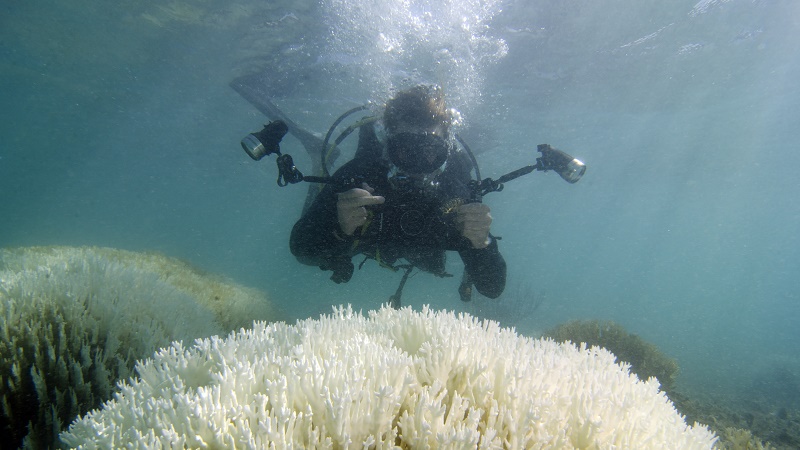Climate change risks disabling the protective mechanism of the world’s largest coral reef against spurts in sea temperature, according to a study.
Bouts of gradual warming have spurred parts of the Great Barrier Reef to build heat tolerance, limiting the severity of bleaching and preventing die-offs.
But more sudden increases in temperature seen by future scenarios were likely to skip this “practice run”, the study published in journal Science on Thursday said.
Heat-stress causes coral to expel their pigmented algae, revealing a brittle limestone skeleton. Reefs act as sanctuaries for marine life and buffer coastlines from storm surges.
It comes as the 1,400-mile-long reef off Australia’s north-east coast suffers widespread bleaching, driven by a powerful El Nino and climbing carbon emissions.
Report: Australia approval of vast coal mine ‘evil’ says marine scientist
“When corals lose the practice run, there is no break, or ‘relaxing’ for the corals as summer stress develops,” said Scott Heron, a coral expert at US science agency NOAA and co-author of the study.
“In future summers, bleaching events will occur more often and, without the practice run, become even more severe–with a greater risk for coral mortality and a fast decline in coral cover across reefs.”
More than three quarters of reefs have built up tolerance as waters have warmed, according to the study which crunched 27 years of data.
A mere 0.5C rise in ocean temperature, expected within four decades at current rates, could destroy that protective mechanism, researchers found. The southern part of the reef is particularly vulnerable.
As Australia bids to protect its reef, understanding temperature patterns was vital, said Bill Leggat from the Australian Research Council Centre of Excellence for Coral Reef Studies.
“This knowledge will help managers increase the likelihood of coral surviving bleaching events in the future by reducing the impact of other stressors, such as pollution and over-use, at both local and regional scales.
Peter Mumby, also from Coral CoE added: “Our results underscore, once again, the importance of global action to reduce greenhouse gas emissions. We can still have a beautiful reef if people are willing to change behaviour.”
